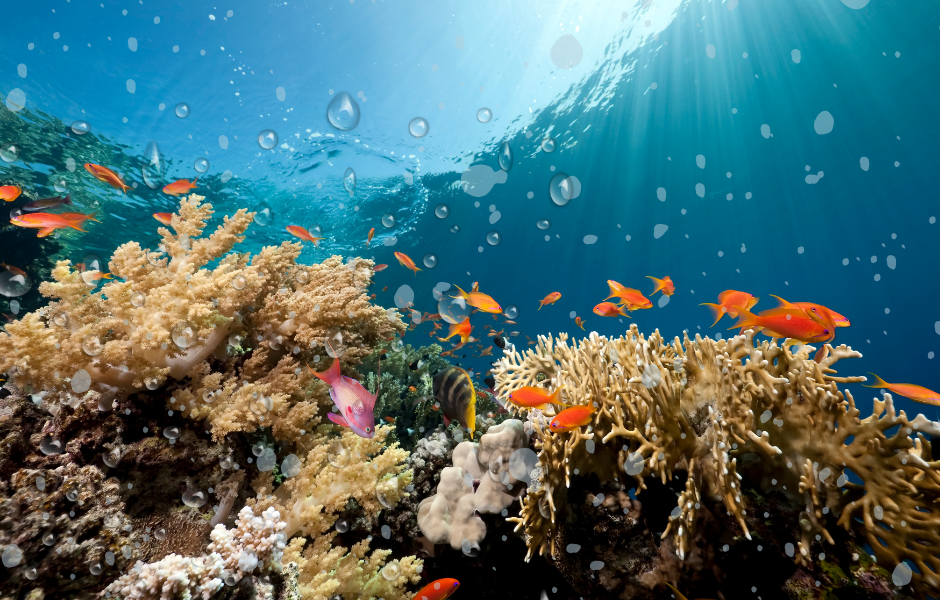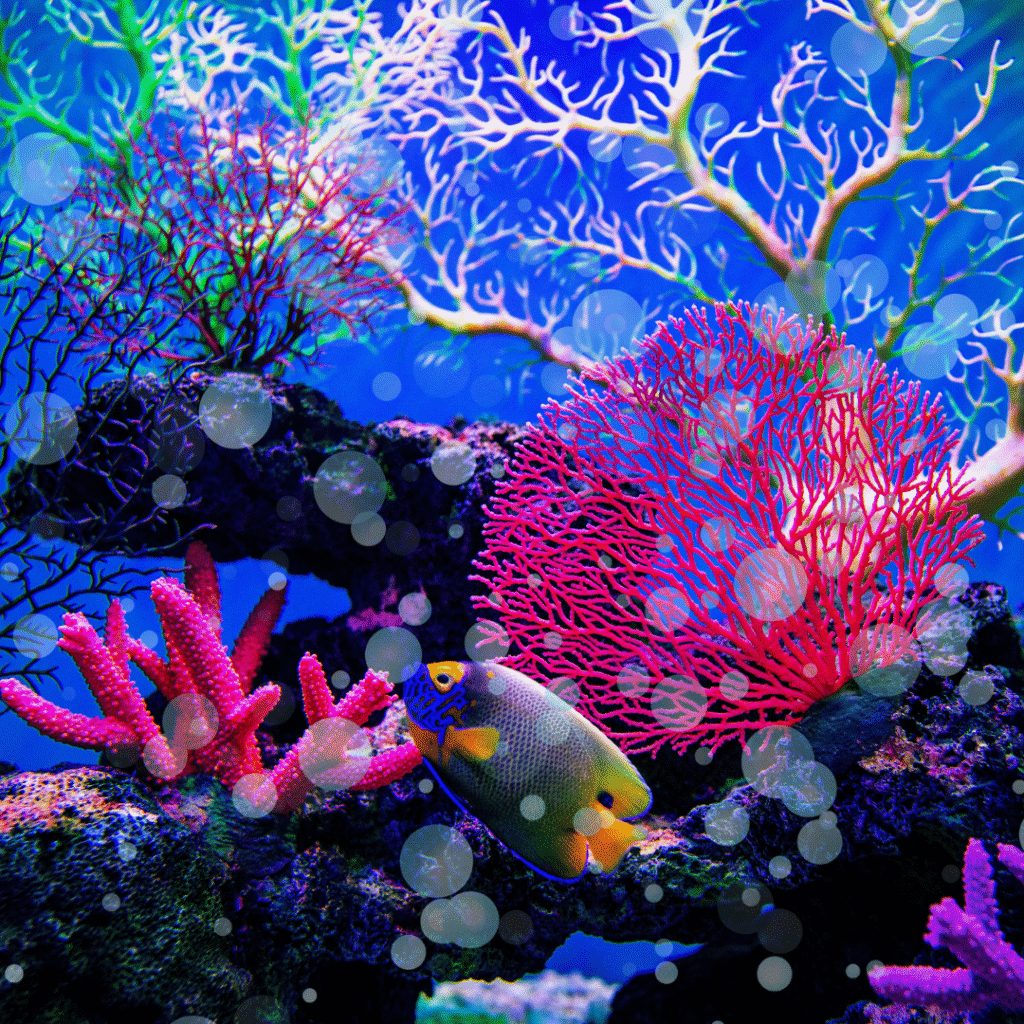
This children’s article, Dive in! 8th June is World Ocean Day – and you can help, has been written for English learners, native and as a second or foreign language. It can help children practise reading and comprehension, learn useful vocabulary, and explore how we can all help protect the world’s oceans. Written by SInead O’Carroll, a teacher and writer at English News For Kids.
Why the ocean is so important
Every year on the 8th of June, people all over the world celebrate World Ocean Day. It’s more than just one day, though; it’s part of a bigger mission to protect the ocean and make sure our planet has a healthy future.
The ocean gives us so much. It produces half the oxygen we breathe, helps control the climate, and is home to millions of amazing animals. From the tiniest plankton to the biggest blue whale, the ocean is full of life.
Our oceans are in danger, though. Pollution, climate change, and overfishing are harming sea animals and upsetting the balance of the natural world.
That’s why World Ocean Day matters. It brings people together to take action and find solutions.
A global movement for change
World Ocean Day began as an idea in 1992, when Canada suggested it at the Rio Earth Summit. Since then, it has grown into a global movement, with thousands of events taking place throughout the year in more than 180 countries.
Every year, people take part in beach clean-ups, art projects, talks, and campaigns to raise awareness. They also join educational workshops, organise ocean-themed festivals, share stories on social media, and create petitions to protect marine life.
And it’s not just adults, young people are a big part of the movement too, in fact, they’re leading it.
World Ocean Day is co-led by a Youth Advisory Council made up of inspiring young leaders from around the world. They share ideas, organise events, and work with over 2,000 groups and organisations to make a real difference.
What can you and your family do?
Even if you don’t live near the sea, you can still help protect the ocean. Here are some simple ways to get started:
Share what you know. Talk to your friends and family about why the ocean matters.
- Use less plastic. Say no to plastic straws, bags, and bottles. Try reusable items instead.
- Eat less seafood, or choose fish that’s caught responsibly.
- Join a local clean-up, or organise one with your school or community.
- Learn more about sea creatures, coral reefs, and ocean science.
Every small action counts. Together, we can create a better future with a clean, healthy ocean and a more stable climate.
Learn more at worldoceanday.org

Article vocabulary list
- Ocean – A huge body of salt water that covers most of the Earth.
- Climate – The usual weather in a place over a long time.
- Pollution – Harmful things like plastic or chemicals that damage the Earth.
- Overfishing – Catching too many fish so there aren’t enough left to grow and stay healthy.
- Awareness – Knowing and understanding something is important.
- Campaign – A group of actions to try to make a big change.
- Youth – Young people.
- Reusable – Something that can be used again and again.
- Stable – Not changing too much; safe and steady.
- Advisory – Giving advice or ideas to help plan something.
Comprehension questions
Just click the plus (+) to see the answer
1. When is World Ocean Day?
a) 5th June
b) 8th June
c) 15th July
Answer: b) 8th June
2. Why is the ocean important?
a) It makes water salty
b) It keeps animals warm
c) It gives us oxygen and helps the climate
Answer: c) It gives us oxygen and helps the climate
3. What year was World Ocean Day first suggested?
a) 2002
b) 1992
c) 1982
Answer: b) 1992
4. What is the Youth Advisory Council?
a) A group of sea animals
b) A team of young people who help lead World Ocean Day
c) A government office for the ocean
Answer: b) A team of young people who help lead World Ocean Day
5. Name one way kids can help protect the ocean.
Example answer: Use less plastic or join a clean-up.
Sinead is a writer and EFL teacher with eight years’ experience. She’s a native English speaker who loves making news stories fun and easy to understand for children around the world. Her passions include travel, animals, and helping to make the world a kinder, more sustainable place.




